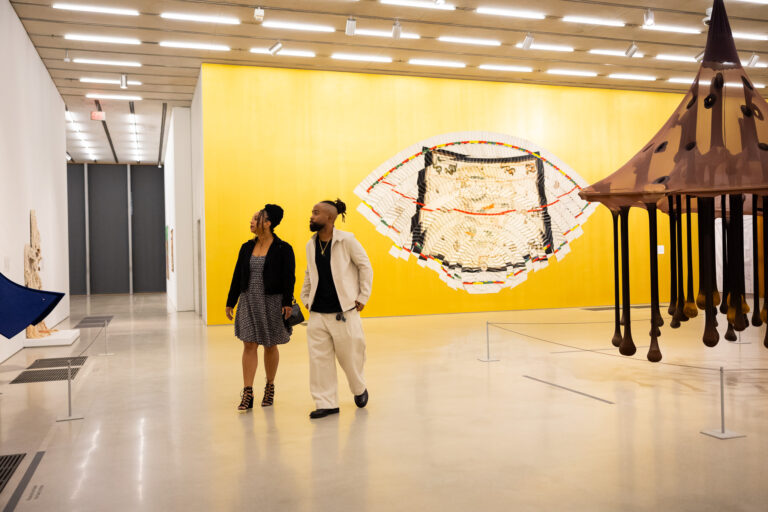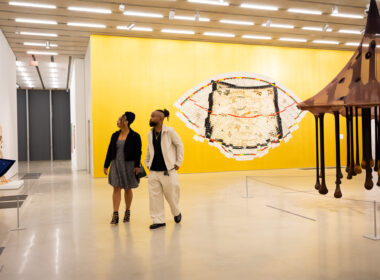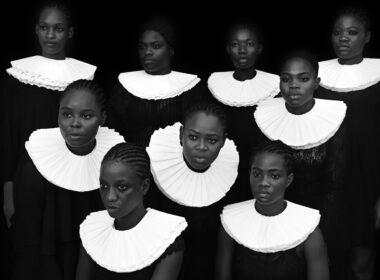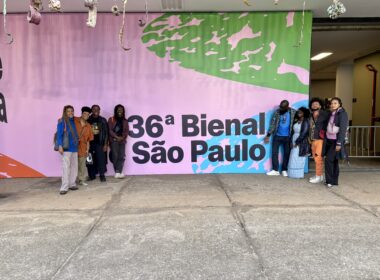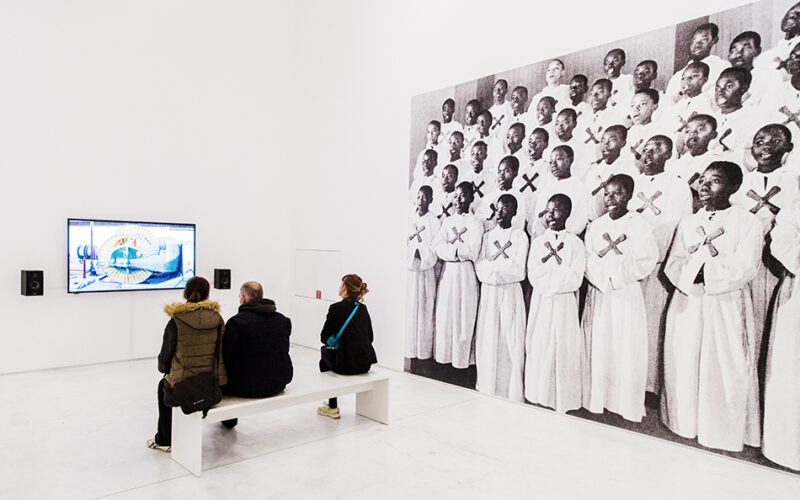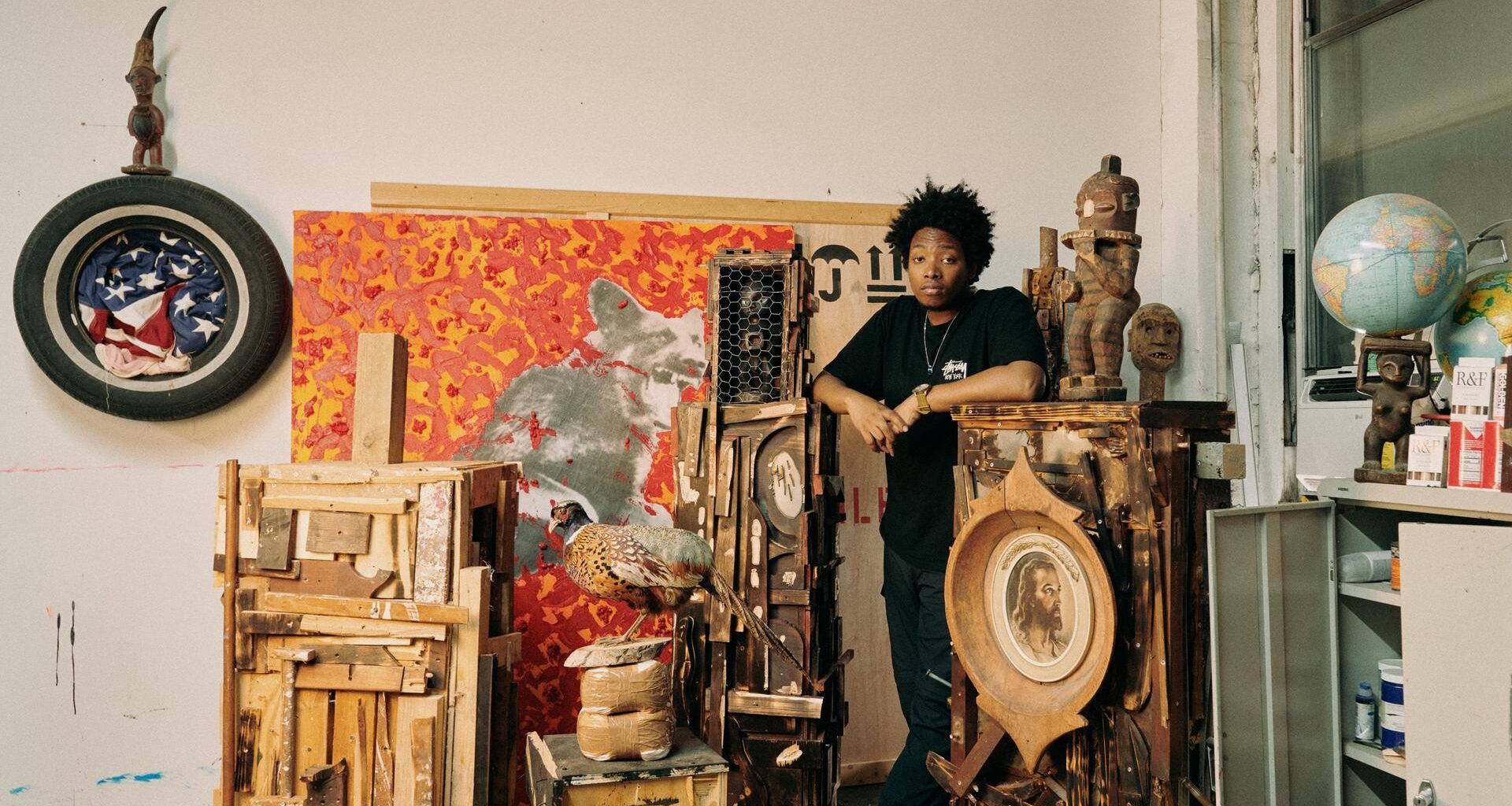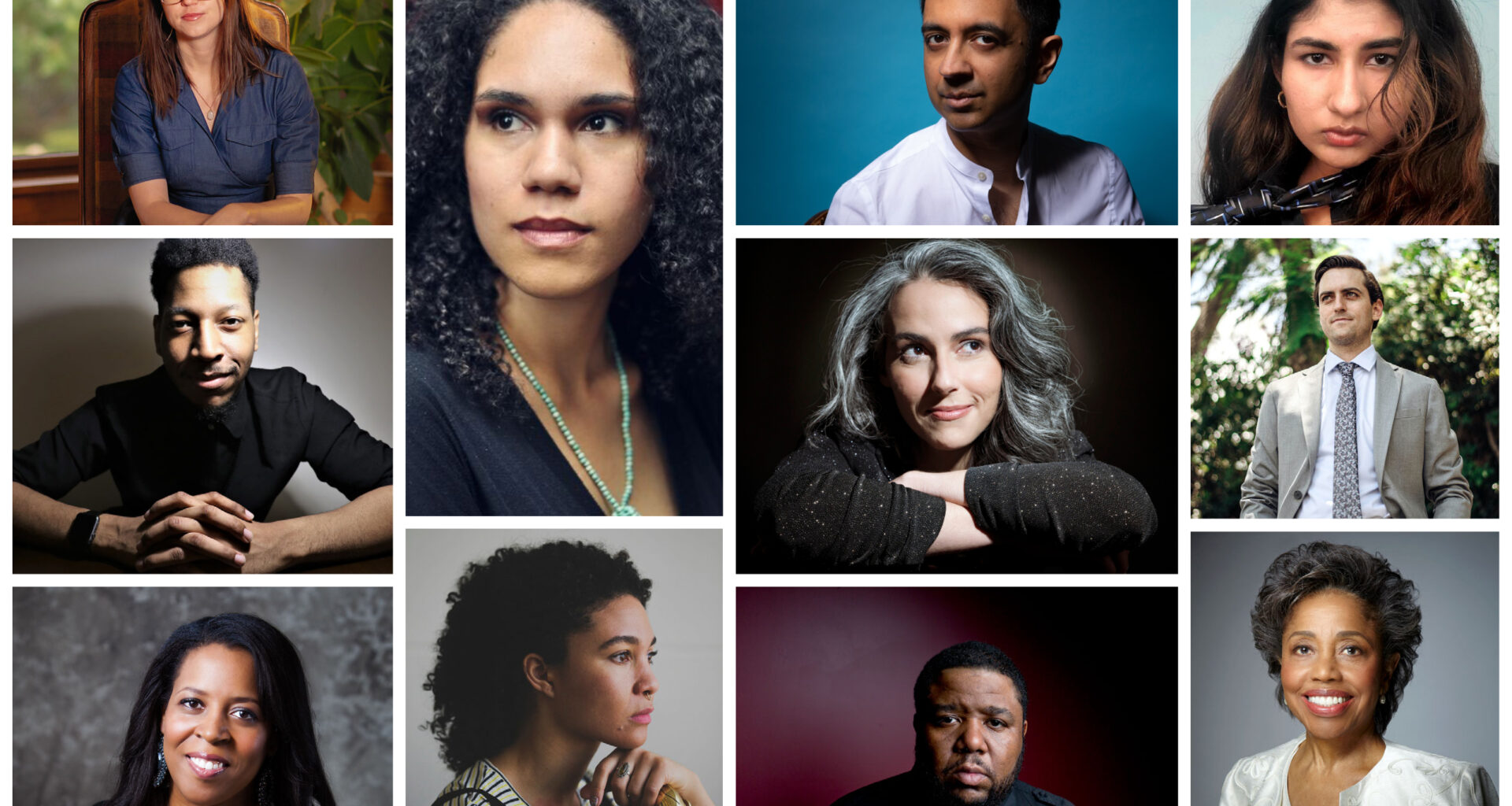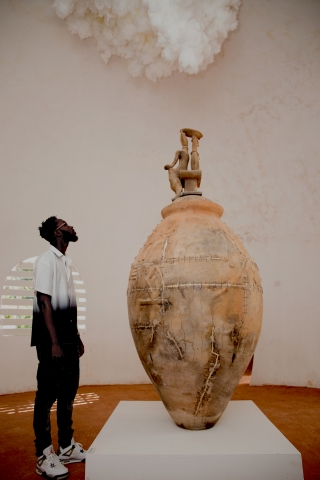The compilation of remarkable events this week is centered on the vast number of creatives on the continent and its diaspora, steadily climbing the rung of the ladder in their various fields of practice. While some of the stories this week comprise awards outrightly bestowed on a single achiever, others reflect recognition for many writers of fiction, nonfiction, and visual artists who work across various mediums. The final news of who emerges as a winner excites, but it is worthwhile to note and explore those, regardless of whether they win or not, who have been distinguished enough to be named as potential recipients.
Hence, with the stories selected this week, we hope you explore and discover new favorites across the various expressions of art and culture …
Shortlist for the 2023 Miles Morland Writing Scholarships Announced
The shortlist for the 2023 Miles Morland Writing Scholarships has been announced, featuring 19 writers selected among 600 entries from published writers across Africa.
The Miles Morland Foundation (MMF) is a U.K.-registered charity founded in 2013 to support Africans aiming for their voices to be better heard. It is particularly interested in supporting African literature. It runs a yearly African writing scholarship to give both writers of fiction and nonfiction the financial freedom to complete an English-language book.
Fiction writers receive a grant of £18,000 (U.S. $21,825) over 12 months, while nonfiction writers who might require additional research time could receive an additional grant for an 18-month period.
This year’s shortlist is an eclectic and intriguing collection, with both fiction and nonfiction books in the mix. The shortlist of 19 was selected based on the combined scores of two readers, grading on the criterion of literary merit.
The judges will select four winners from the shortlist. They also will consider book proposals when making their decision.
The names on the 2023 Miles Morland Writing Scholarship shortlist are:
- Deborah Adeniyi (Nigeria)
- Rafeeat Aliyu (Nigeria)
- Jekwu Anyaegbuna (Nigeria)
- Justin Clement (Nigeria)
- Mary-Alice Daniel (Nigeria)
- Eromo Egbejule (Nigeria)
- Mubanga Kalimamukwento (Zambia)
- Ayesha Kassiem (South Africa)
- Kiprop Kimutai (Kenya)
- Wesley Macheso (Malawi)
- Priya Nirmala Hein (Mauritius)
- Remy Ngamije (Rwanda/Namibia)
- Lindiwe Nkutha (South Africa)
- Masande Ntshanga (South Africa)
- Tolu Ogunlesi (Nigeria)
- Kanyinsola Olorunnisola (Nigeria)
- Temitope Owolabi (Nigeria)
- Joe Ruzvidzo (Zimbabwe)
- Obinna Udenwe (Nigeria)
The winners will be announced on Nov. 17, 2023.
Unextractable: Sammy Baloji Invites Opens at Kunsthalle Mainz in Germany
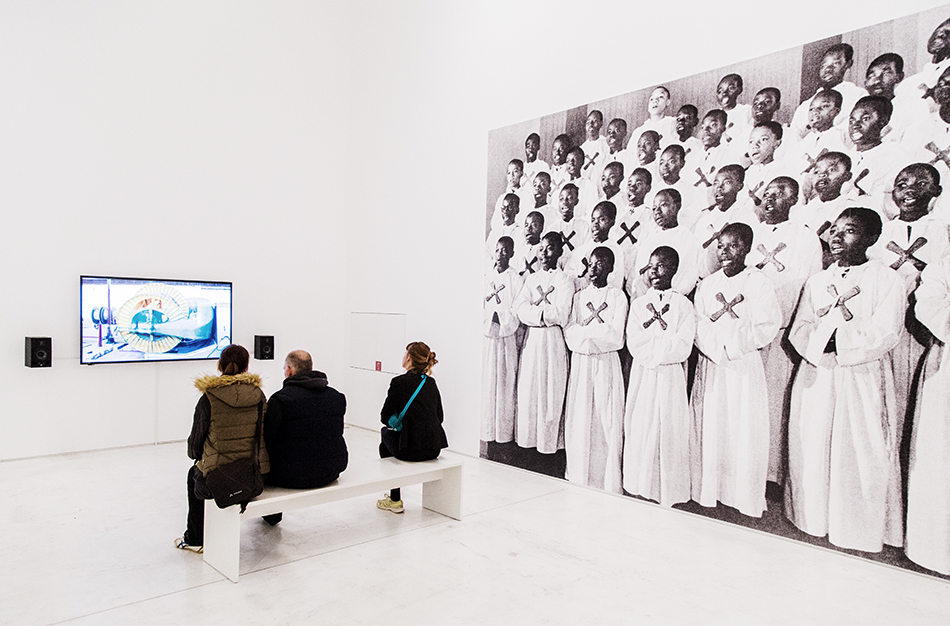
Opening this weekend at the Kunsthalle Mainz in Mainz, Germany is a group exhibition assembled by Congolese artist Sammy Baloji.
Baloji repeatedly addresses in his work the history of mining in and around his native city of Lubumbashi in the southeast of the Democratic Republic of Congo (DRC). He documents how extractive industries have wreaked extensive destruction on the Katanga region and its social structures, transforming the land into resources and reducing entire societies to a mere pool of potential laborers. He juxtaposes to this harshness the memories, hopes and projects of people who live amidst the ruins of colonialism, industrial mining and the global capitalist economy.
A central role in his work is played by an examination of the colonial archive: Baloji searches beyond pejorative representations and fixed ethnographic attributions for traces of practices and historical experiences that people conceived and passed down in spite of and across the radical changes their societies were undergoing. He currently is pursuing these questions, which are incorporated into the exhibition in the form of collaborations and elements of research in an artistic doctoral thesis.
Collaborating with artists, activists and theorists in order to develop collective structures is an ongoing aspect of Sammy Baloji’s work. The art center Picha, which he co-founded in 2008 with artist friends in Lubumbashi, plays a central role in such collaborative efforts. Since its establishment, the independent platform, run by artists and cultural producers, has hosted the Lubumbashi Biennale; its last edition in 2022 was devoted to the topic of ToxiCity. The Center also offers a residential and mentoring program called Atelier Picha, primarily dedicated to young Congolese artists.
When he was invited to Kunsthalle Mainz, it came as no surprise that Sammy Baloji extended the invitation to include 12 other colleagues from the DRC and Europe who worked with Picha in the past. The result straddles disciplines, places and media to give rise to a collaborative-cum-collective undertaking that reconsiders issues and approaches that were mainly developed in Lubumbashi in the context of Mainz and Germany.
The exhibition is structured around three thematic clusters: Expropriating Land – the Transformation of Soil into Raw Material takes the foreground in the works of Franck Moka, Hadassa Ngamba and Georges Senga. Sybil Coovi Handemagnon, Isaac Sahani Dato, and Fundi Mwamba Gustave and Antje Van Wichelen focus on Confronting the Colonial Archive and Its Afterlives.
In the works of Nilla Banguna, Julia Tröscher and Jackson Bukasa and Dan Kayeye and Justice Kasongo, narrative and pictorial legacies practiced on the margins of urban modernity in often precarious circumstances are reread and appropriated. One example of this is the Kasala, a poem that is recited and that celebrates the history of a person or community by combining genealogical and biographic elements with myths and narratives about the cosmic order of the world. For these artists, the emphasis is on Transmission by Transformation.
The interwoven thematic threads are directly related to Sammy Baloji’s works from recent years as well as his current research, which investigates possible strategies for reconnecting interrupted chains of knowledge, the possibilities to rely on objects to this end, and above all, the transmission of gestures and narratives as a lived practice. With a focus sharpened by the collective structures they build, the artists are developing ever-new forms and cooperations to resist extractivism.
The exhibition will open this weekend on Oct. 27and will be on view until Feb. 11, 2024.
The Norval Sovereign African Art Prize Announces Shortlist for 2024 Edition
Norval Foundation in South Africa and The Sovereign Art Foundation (SAF, Hong Kong) have announced the names of 30 artists shortlisted as finalists for The Norval Sovereign African Art Prize (NSAAP) 2024, an annual award for contemporary artists from Africa and its diaspora.
A board of independent arts professionals comprising curators, writers and academics, who work closely with artists in their respective regions, nominated artists to enter the Prize.
Over 375 entries were received, and 30 finalists, representing 18 different nationalities, were then shortlisted by a jury featuring Ashraf Jamal, writer and researcher, ArtBankSA and the University of Johannesburg; Heba El Kayal, chief curatorial consultant, Norval Foundation; Marie-Ann Yemsi, independent exhibition curator and contemporary art consultant; Ngaire Blankenberg, founder and director, Institute for Creative Repair; and Sean O’Toole, writer, editor and curator.
Judge Marie-Ann Yemsi said of the prize: “As a member of the jury since the first edition, it is with great satisfaction to see the growing appeal of NSAAP for artists from all over the continent and the diasporas. Selected by an ever-expanding network of expert nominators whose vision and expertise are decisive; this 2024 edition is rich and exciting, with artists from a wide range of horizons, and I’m proud of the significant presence of women artists.
“In my opinion, this third edition testifies to the very significant evolution of the prize, with a final selection of artists whose quality and originality of their work is intrinsically associated with a deep and lucid reflection on the world. Finally, I am delighted to note the decisive impact of NSAAP on the development of the careers of the first two winners, and the very positive spin-offs for the finalists in terms of visibility, thanks to the group exhibition presented by the Norval Foundation.”
The Norval Sovereign African Art Prize celebrates the practices of leading contemporary artists and aims to benefit them by further increasing their exposure to an international audience. This year, the grand prize cash award has been increased to U.S $35,000 and is granted to the artist selected by the panel of judges, together with a solo exhibition at Norval Foundation in Cape Town.
The shortlisted artworks will be presented to the public in a Finalists Exhibition at Norval Foundation from Feb. 14–May 15, 2024. Here, visitors will be invited to vote for their favorite artist, and together with online votes, the most popular artist will be awarded the Public Vote Prize of U.S. $2,000.
The Prize aims to raise significant funds for the shortlisted artists and for Norval Foundation’s Learning Centre in an equal split through an online auction hosted by Sotheby’s (Feb. 13-20). An auction launch and exhibition opening is scheduled for Feb. 13, at which the grand prize winner will be announced.
Thelma Golden Receives the Gish Prize

Thelma Golden, director and chief curator of The Studio Museum in Harlem (New York)—the world’s leading institution devoted to visual art by artists of African descent—has been awarded the 2023 Gish Prize.
Charlotte Eyerman, managing director of the JPMorgan Chase Art Collection, which oversees the prize trust, said, ”In choosing Thelma Golden, this year’s committee recognizes a leader who has empowered hundreds of vital Black artists and advanced the careers of countless outstanding Black arts professionals.”
Born and raised in New York City, Golden began her career as an apprentice at the Metropolitan Museum of Art while still in high school. She began working at The Studio Museum while an undergraduate student of art history and African American studies at Smith College—first as an intern, then as a curatorial fellow after graduation.
Golden said it was a “total surprise” when the selection committee told her she had won. “I’m usually on the other side of this, someone who nominates artists for awards,” she said. “It feels very strange to be on the opposite side.” The prize is endowed with U.S. $250,000.
In 1988, Golden joined the Whitney Museum of American Art as a curator assistant. After a brief leave to work for art historian and curator Dr. Kellie Jones as the visual arts director at the Jamaica Arts Center, Golden returned to the Whitney as the director of the Whitney Museum of American Art at Philip Morris and was appointed associate curator in 1993. In her curatorial positions there, she organized numerous innovative exhibitions, including the groundbreaking 1993 Whitney Biennial and a landmark exhibition titled Black Male: Representations of Masculinity in American Art in 1994.
In 2000, Golden returned to The Studio Museum as the deputy director for exhibitions and programs and was named the director and chief curator in 2005, succeeding Dr. Lowery Stokes Sims. Under Golden’s leadership, the museum has gained increased renown as a global leader in the exhibition of contemporary art, a center for innovative education, and a cultural anchor in the Harlem community. Golden’s curation at The Studio Museum includes a multitude of exhibitions, including the inauguration of a five-part series that began with Freestyle in 2001, which highlighted emerging Black artists. Other exhibitions include Chris Ofili: Afro Muses 1995–2005 and Black Romantic: The Figurative in Contemporary African-American Art.
Recently, Golden kicked off a multi-year collaborative partnership between The Studio Museum and the Museum of Modern Art to maintain presence and community engagement while The Studio Museum ushers in a new era. Now in her 18th year as director, Golden spearheaded the construction of the first-ever purpose-built facility in The Studio Museum’s 55-year history. This monumental building project demonstrates Golden’s commitment to advancing both the museum’s global future and its firm place within the Harlem community.
Golden holds a Bachelor of Arts from Smith College. She has received honorary doctorates from the New School (2022), Columbia University (2018), Barnard College (2010), the City College of New York (2009), San Francisco Art Institute (2008) and Smith College (2004). She received the Audrey Irmas Award for Curatorial Excellence from the Center for Curatorial Studies at Bard College in 2010 and the J. Paul Getty Medal in 2018. Golden also has been the recipient of various fellowships and was named a Henry Crown Fellow in 2008 and a Ford Foundation Fellow in 2015.
President Barack Obama appointed her to the Committee for the Preservation of the White House, on which she served from 2010 to 2016. Golden currently serves on the board of directors for the Barack Obama Foundation, the Los Angeles County Museum of Art, the Andrew W. Mellon Foundation and the Crystal Bridges Museum of American Art. She is also a member of the advisory committee for the Goldman Sachs “One Million Black Women” initiative and the advisory board for the Black Trustee Alliance for Art Museums. Recently, she served on the international jury for the Venice Architecture Biennale (2023). Golden is a recognized authority on Black art and an active lecturer and panelist who speaks about contemporary art and culture at national and international institutions.
The selection committee for the 30th Gish Prize was chaired by Sade Lythcott, executive director, National Black Theatre, and included Laura Aden, president & CEO, Howard Gilman Foundation; Anna Glass, executive director, Dance Theatre of Harlem; Terrance McKnight, host at WQXR, New York Public Radio; and Adam D. Weinberg, director emeritus, Whitney Museum of Art.
Compiled by Roli O’tsemaye
